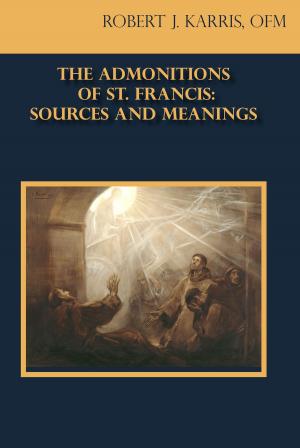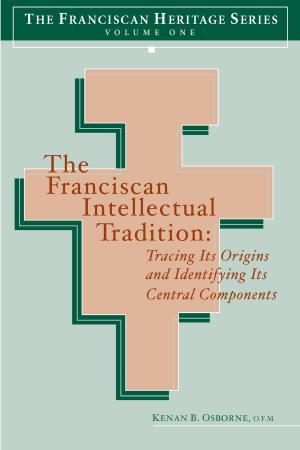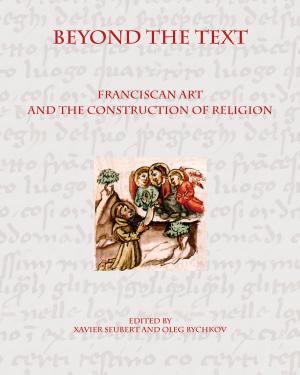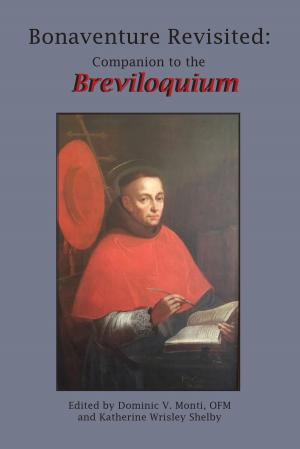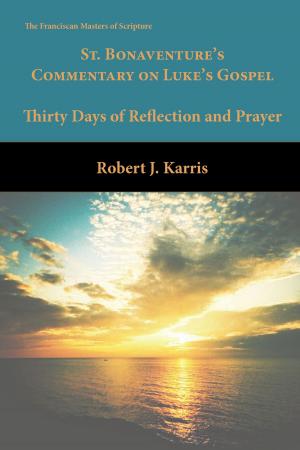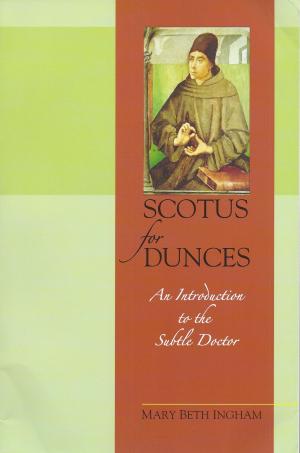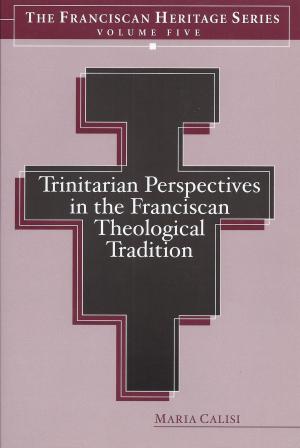Commentary on the Sentences
Philosophy of God
Nonfiction, Religion & Spirituality, Reference, General Reference, Christianity, Denominations, Catholic, Catholicism| Author: | R. E. Houser, Timothy B. Noone | ISBN: | 9781576593769 |
| Publisher: | The Franciscan Institute | Publication: | May 1, 2014 |
| Imprint: | Franciscan Institute Publications | Language: | English |
| Author: | R. E. Houser, Timothy B. Noone |
| ISBN: | 9781576593769 |
| Publisher: | The Franciscan Institute |
| Publication: | May 1, 2014 |
| Imprint: | Franciscan Institute Publications |
| Language: | English |
Without exception, every word of philosophy Bonaventure ever wrote is contained in works explicitly religious—in sermons, works of spiritual direction, and theology. For this reason, we begin by looking at Bonaventure’s conception of theology and the place of philosophical reasoning within it. In his attempt to present a theology that is a “science” which leads us to “wisdom,” Bonaventure uses language that might at first glance seem to be merely metaphorical. But Bonaventure’s care in making his language precise and philosophical in understanding God is a tribute to the optimism the greatest Masters of Theology at mid-thirteenth century Paris had in the rational possibilities of the human mind.
This volume has not been designed to cover all the profound points Br. Bonaventure made in treating God philosophically in his Commentary, but only to highlight a few important issues, so that the reader will have a preliminary view of the whole, before plunging into the vast and refreshing pool that is his “philosophy of God.”
Bonaventure’s magnificent Commentaries on the Sentences have remained beyond the reach of Anglophone readers for far too long. This volume, with select questions from Books One and Three, presents the richness of Bonaventure’s little-known philosophy of God. With their superb translations and extensive annotations, R.E. House and Timothy B. Noone have provided students of the Seraphic Doctor with a resource they will treasure for years to come.
- Timothy J. Johnson, Professor of Religion, Flagler College
Research Advisory Council, Franciscan Institute
Noone and Hauser have made a major contribution to the study of Bonaventure and medieval philosophy by providing a clear translation that introduces his Commentary on the Sentences to English-speaking readers. Their introduction to the volume is a model of scholarship and provides an invaluable tool for the study of Bonaventure and his philosophy of God.
- Christopher Cullen, Associate Professor of Philosophy, Fordham University
Without exception, every word of philosophy Bonaventure ever wrote is contained in works explicitly religious—in sermons, works of spiritual direction, and theology. For this reason, we begin by looking at Bonaventure’s conception of theology and the place of philosophical reasoning within it. In his attempt to present a theology that is a “science” which leads us to “wisdom,” Bonaventure uses language that might at first glance seem to be merely metaphorical. But Bonaventure’s care in making his language precise and philosophical in understanding God is a tribute to the optimism the greatest Masters of Theology at mid-thirteenth century Paris had in the rational possibilities of the human mind.
This volume has not been designed to cover all the profound points Br. Bonaventure made in treating God philosophically in his Commentary, but only to highlight a few important issues, so that the reader will have a preliminary view of the whole, before plunging into the vast and refreshing pool that is his “philosophy of God.”
Bonaventure’s magnificent Commentaries on the Sentences have remained beyond the reach of Anglophone readers for far too long. This volume, with select questions from Books One and Three, presents the richness of Bonaventure’s little-known philosophy of God. With their superb translations and extensive annotations, R.E. House and Timothy B. Noone have provided students of the Seraphic Doctor with a resource they will treasure for years to come.
- Timothy J. Johnson, Professor of Religion, Flagler College
Research Advisory Council, Franciscan Institute
Noone and Hauser have made a major contribution to the study of Bonaventure and medieval philosophy by providing a clear translation that introduces his Commentary on the Sentences to English-speaking readers. Their introduction to the volume is a model of scholarship and provides an invaluable tool for the study of Bonaventure and his philosophy of God.
- Christopher Cullen, Associate Professor of Philosophy, Fordham University




